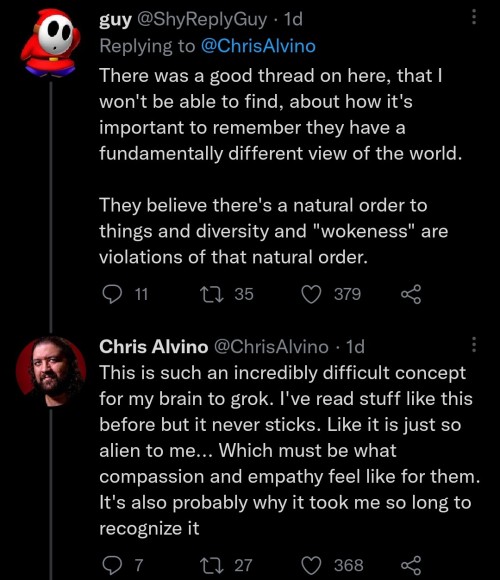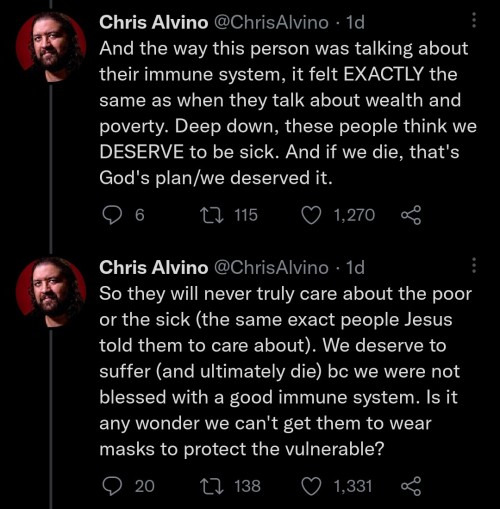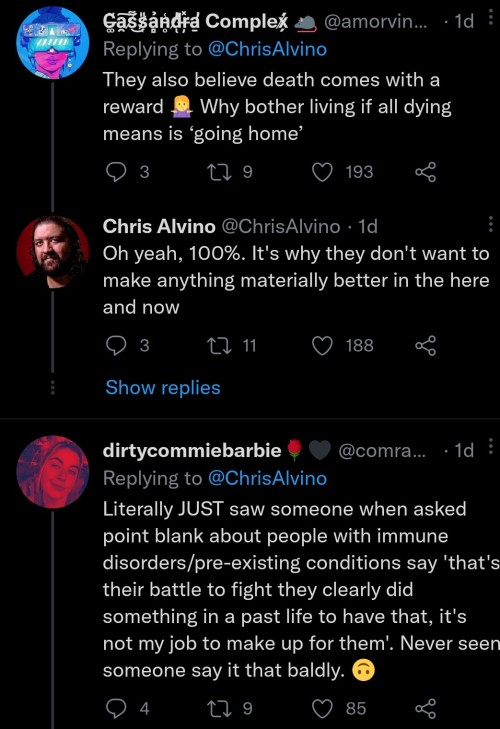Dive Deep into Creativity: Your Ultimate Tumblr Experience Awaits
Fuck The System - Blog Posts
it's bizarre to me how many people say to me "I would, but I don't want to take anything off-track" or something along those lines. I wish we were taught more about protests and revolts in school so people understand that they have a voice

Ain’t nothing wrong with picking up fallen succulent leaves off the floor of the Walmart garden center, takin’ ‘em home, and growing your own plant babies. Pirate those plants. Fuck the system.
"I'm gonna call the cops!" ❌️
Boring
Overused
Supporting a shitty system
"I'm gonna call a biker gang on you!" ✅️
Funny
Unique
Not supporting the system
Anyone know where else to get quality sexy pics now that Reddit is also fucked up.
Not going on twitter. Fuck twitter.
So yes, fuck corporate internet
r/tumblr and r/curated tumblr should *really* shut doen on the 12th as part of the reddit blackout protest.
And not JUST for 48 hours. Until the changes are reverted. Go the distance. Indefinite. Like a strike.
Hang the DJ
who’s gonna rebel with me against the system 998/1000 times?
i fucking HATE begging for money as both a small business owner and an anticonsumerist person.
but when every single goddamn person gets their shit from corporate, and i'm making negative profit working my ass off in the hope of maybe $3 profit for some oatmilk, what am i supposed to do.
i'm tired of being shamed for shoplifting from soulless corporate empires and getting laughed at for pricing my handmade jewellery at $6 to pay for national shipping with no profit.
i'm just trying to do the fucking thing you TOLD ME this "free market" bullshit was for, but we live in a FUCKING CORPORATE TOTALITARIAN EMPIRE.
I feel like no one acknowledged the fact that Kate groomed Derek. That boy was 16 and that grown ass hoe was putting moves on him. And then he had to grow up thinking that shit was on him? Fuck that two faced psychotic bitch
I feel for all the people who never realized what happened to them. Just remember it was never your fault. You were a kid. You didn’t deserve that. You never did. And I didn’t either.
I once was at a religious gathering with my parents (none of us are religeus but our grandparents who where with us are). The priest there said behind the back of my cousin who has an autoimmune disease that she deserved it as recompense for some grand plan (this is a hindu temple so past lives or godly forms or some other bullshit excuse). We own the temple so he was fired imeadeatly, but in the moment there were some temple goers who agreed with him, and my dad turned to me and we shared a communal moment of "lets get out of here" so we left with some excuse and drove off.





Housing Discrimination
NO. 1
Racial exclusion, or segregation had real damage to the black communities persistent in their fight for freedom to own and be included in everything whites were already allowed in; the fight for equality, economic security, for education, and for fair housing was just beginning. Racial exclusion was such a severe enough problem, since in every near northern city, black newcomers crammed into old and run-down housing, mainly in dense central neighborhoods left behind by upwardly mobile whites. White builders, in charge of housing and agencies related could dictate who could own, and William Levitt, of Leviittown where massive developments were made in the suburb, was no exception.
These types of houses were ‘affordable for the common man’, and remade America’s landscape after World War II. The iconic images of little ranches and Cape Cods, set in spacious yards on curvilinear streets, stood for everything that America celebrated in the Cold War era. These subdivisions attracted a heterogenous mix of surburnites, blue-collar workers employed by U.S Steel factories, teachers, clerks, and administrators. Levitt celebrated the ‘American-ness’ of these houses, saying ‘’No man who owns his house and lot can be a communist. He has much to do.’’ Don’t really know how owning a house can get in the way of your political ideologies, but alright. And when Levitt was questioned about the racial homogeneity of his planned community, he responded, ‘’We can solve a housing problem or we can try to solve a racial problem, but we cannot combine the two.’’ But the housing and racial problem was connected, as blacks could not get these houses because they were black. One instance of racial exclusion was in metropolitan Philadelphia, where between 1946, only 347 of 120,000 new homes built were open to blacks. Langston Hughes, popular poet described black neighborhoods as the ‘land of rats and roaches, where a nickel cost a dime.
NO. 2
Economist Robert Weaver spoke, ‘’among the basic consumer goods, only housing for Negroes are traditionally excluded freely competing in the market.’’ The struggle to open housing was not just a matter of free access to a market excluded to blacks. Racial segregation had high stakes. In post war America, where you lived shaped your educational options, your access to jobs, and your quality of life. The housing markets also provided most Americans with their only substantial financial asset. Real estate was the most important vehicle for the accumulation of wealth. Breaking open the housing market would provide blacks to access to better-funded, higher-quality schools. It would give them the opportunity to live in growing communities–near the shopping malls, office centers, and industrial parks where almost all new job growth happened. And more importantly, it would narrow the wealth-gap between blacks and whites. The battle against housing discrimination in Levingttown, or anywhere else would be the most important in the entire northern freedom struggle.
NO. 3
Housing segregation in the north was built on a sturdy foundation of racial restrictions encoded in private regulations and public policy. In the late nineteenth and early twentieth centuries, the Midwest–and especially Indiana and Illinois, were dotted with ‘sundown towns’ places whose residents drove blacks off by force, enacted ordinances to prohibit black occupancy (although such ordinances were struck down by the Supreme Court in 1917), and sometimes posted signs, like that in Wendell Willkie’s Elwood, Indiana, warning blacks of the dire consequences of staying around after sunset. Such crude techniques succeeded in driving blacks out of small towns, but they were less effective in the major northern metropolitan areas that attracted the vast majority of African American migrants beginning in World War I.
Three devices were used to help housing discrimination: first, private but legally enforecable restrictive covenants—attached to nearly every housing development built between 1928 and 1948— forbade the use or sale of a property to anyone other than whites. Second, federal housing policies, enacted during the Depression, mandated racial homogeneity in new developments and created a separate, unequal housing market, underwritten with federal dollars, for blacks and whites. And third, real estate agents staunchly defended the ‘freedom of association and the right of home owners and developers to rent or sell to whom they pleased, steering blacks into racially mixed or all-black neighborhoods. Whites in the North had economic reasons to fear the ‘Negro invasion’ as they called it. Their ability to secure mortgages and loans were at risk. But their motivations were not solely economic. Intertwined concerns about property values were fears of black predation. North and South recoiled at the prospect of miscegenation. In the South, they feared the legal restrictions on intermarriage and racial mixing in public spaces; the North feared the regulation of housing markets.

